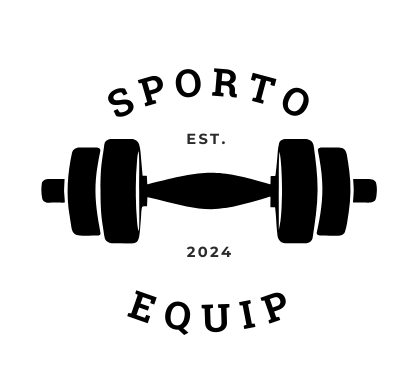
The Importance of Post-Workout Recovery: Strategies for Optimal Results
By: Noor-E Sifat Published: 18 Sept 2023
Exercise has long been celebrated as a crucial component of a healthy lifestyle, delivering an array of physical and mental benefits. However, while the act of working out is vital, it’s what you do afterward that can make a significant difference in your progress. Post-workout recovery is often underestimated, yet it plays a pivotal role in achieving optimal results and preventing injuries. In this article, we’ll delve into the importance of post-workout recovery and provide you with effective strategies to help you maximize the benefits of your workouts

Understanding the Significance of Post-Workout Recovery
The aftermath of a workout can leave you feeling exhilarated, but it’s also when your body needs attention and care. Post-workout recovery is crucial for several reasons:
1. Muscle Repair and Growth: When you exercise, especially through strength training or high-intensity workouts, you create micro-tears in your muscle fibers. Proper recovery allows these fibers to repair and grow stronger, ultimately leading to increased muscle mass and improved performance.
2. Injury Prevention: Overexertion and insufficient recovery can increase the risk of injuries. Fatigued muscles and compromised form can lead to accidents and chronic issues. Recovery helps in restoring your body’s balance and reducing these risks.
3. Energy Restoration: Intense exercise can deplete your body’s energy stores, leaving you feeling fatigued. Proper recovery ensures that your energy levels are replenished, allowing you to perform at your best during subsequent workouts.
4. Reduction of Muscle Soreness: Post-workout recovery techniques can alleviate the dreaded muscle soreness that often follows a challenging workout. This enables you to stay consistent with your exercise routine.
5. Improved Mental Well-being: Exercise has undeniable benefits for mental health, and recovery is no exception. It gives you time to relax, unwind, and reduce stress levels, contributing to better overall well-being.
Effective Strategies for Post-Workout Recovery
Now that we’ve established the significance of post-workout recovery, let’s explore some strategies to help you make the most of this critical phase:
1. Cool Down: After a strenuous workout, take a few minutes to cool down. Slowly decrease the intensity of your exercise and finish with some gentle stretching. This helps reduce the buildup of lactic acid and minimizes the risk of muscle cramps.
2. Hydrate: Rehydration is essential. During exercise, you lose fluids through sweat, and it’s crucial to replace them to maintain optimal bodily functions. Water or a sports drink can help replenish lost electrolytes.
3. Nutrition: Post-workout nutrition is paramount. Consume a combination of carbohydrates and protein within an hour of finishing your workout. Carbohydrates replenish glycogen stores, while protein supports muscle repair and growth. A banana and a protein shake, or a turkey sandwich are excellent choices.
4. Rest and Sleep: Adequate rest is one of the most effective recovery tools. Ensure you get enough sleep as it’s during deep sleep that your body initiates crucial repair processes. Aim for 7-9 hours of quality sleep per night.
5. Stretching and Mobility Work: Regular stretching and mobility exercises enhance flexibility and prevent muscle stiffness. Incorporate dynamic stretches and foam rolling into your routine to keep your muscles supple.
6. Active Recovery: Engage in light, low-impact activities on your recovery days. Activities like walking, swimming, or gentle yoga can improve circulation and help your muscles recover without adding stress.
7. Compression Garments: Compression clothing, like compression sleeves or compression socks, can aid in reducing muscle soreness and swelling by improving blood flow and reducing muscle vibration during exercise.
8. Ice Baths and Contrast Showers: Cold therapy, such as ice baths or contrast showers (alternating between hot and cold water), can reduce inflammation and muscle soreness. However, they may not be suitable for everyone, so consult with a healthcare professional before using these methods.
9. Mindfulness and Relaxation: Incorporate mindfulness practices like meditation or deep breathing exercises into your recovery routine. This can help reduce stress and promote relaxation, facilitating the healing process.
10. Listen to Your Body: Above all, pay attention to your body’s signals. If you feel excessively fatigued or experience persistent pain, it may be a sign that you need more recovery time. Don’t push yourself too hard and be open to modifying your workout schedule accordingly.
11. Professional Guidance: If you’re serious about your fitness goals or have specific concerns, consider consulting with a fitness professional or physical therapist. They can provide personalized recovery strategies tailored to your needs.
The Long-Term Benefits of Prioritizing Recovery
Consistently applying post-workout recovery strategies can yield significant long-term benefits for your fitness journey. Here’s what you can expect:
1. Improved Performance: Adequate recovery allows you to train harder and more effectively during your workouts. Over time, this leads to enhanced performance and quicker progress toward your fitness goals.
2. Reduced Risk of Injury: By taking care of your body post-workout, you can minimize the risk of overuse injuries, strains, and sprains, ensuring you can stay active and injury-free.
3. Enhanced Muscle Development: Proper recovery supports muscle growth and repair. As your muscles become stronger and more resilient, you’ll notice improved muscle definition and overall strength.
4. Sustainable Fitness Habits: Consistent recovery practices make it easier to maintain a regular exercise routine. Reduced soreness and fatigue mean you’re more likely to stay motivated and committed to your fitness goals.
5. Mental Well-being: Recovery is not just about the body; it’s also about the mind. Lower stress levels and improved mental clarity can enhance your overall quality of life.
Conclusion
In conclusion, post-workout recovery is not a luxury; it’s a necessity for anyone committed to a healthy and active lifestyle. By incorporating these strategies into your fitness routine, you can unlock the full potential of your workouts, reduce the risk of injuries, and ensure that you’re progressing toward your goals effectively. Remember that recovery is not a one-size-fits-all approach; it’s about finding what works best for your body and listening to its needs.
Prioritize your recovery, and you’ll reap the rewards of improved performance, increased strength, and a healthier, more balanced life.
Read more from Recovery and Post-Workout!
